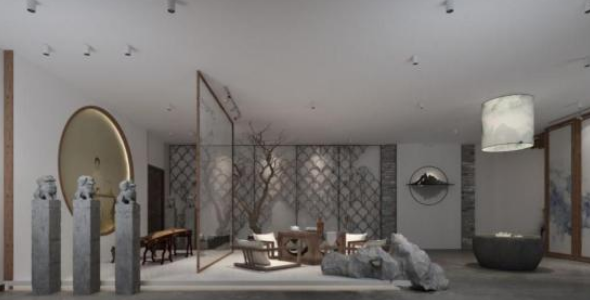The relationship between Feng Shui and the modern home
In simple terms, Feng Shui is a comprehensive study of the relationship between people and the environment, a methodology and world view of human existence, including “feng shui of the Yang house” and “feng shui of the Yin house”.

Some people say: “Feng Shui is a rigorous discipline”, because it has a civilizational history that has been tested in practice for 5,000 years, a scientific and huge theoretical system, a set of strict operational procedures and undoubtedly magical functions.
Feng Shui in Your home
In terms of feng shui in the home, its research includes: residential orientation, lighting and ventilation, temperature and humidity, hygiene, safety precautions, social factors, how to use, etc. As the saying goes, “the earth is a spiritual place and the people are excellent,” and “feng shui” is very important to people.

There are many specific feng shui requirements that contain some scientific reasoning, for example, feng shui believes that a house should not be located in a place where grass and trees do not grow, because the land is barren and devoid of life, and that it is not advisable to live at the entrance of a large city or facing a prison, as this environment will destroy the psychological tranquillity, as well as “a dung house facing a door will have a long history of carbuncles” “This is fully in line with modern medical science. For the layout of a house, there is a saying in Feng Shui: “A house with a low front and a high back will produce heroes”. In this way, in addition to the spectacular appearance, the front and back of the house can generally get full sunlight, which is good for the physical and mental health of people in such an environment.
Feng Shui believes that the front of the house and the yard can not have large trees, from the perspective of modern scientific interpretation, because large trees will block the sun, impede air circulation, thunderstorms are easy to attract lightning strikes, birds perched on the trees will drop bird droppings, polluting the environment, mosquitoes are easy to grow in the damp shade, the Qing Dynasty Feng Shui experts Gao Bei Nan that: “residential appropriate east plant peach willow, west plant green elm, south plant plum jujube, north plant nai apricot”, this statement is in line with the physiological characteristics of tree species in botany, because peach, willow like warm sunny, suitable for planting the east of the house, and plum, jujube tree trunk is not large, suitable for planting the south of the house, apricot tree does not like sunlight, so suitable for planting the north of the house.
Feng shui is not complicated
When it comes to feng shui, many people are curious and sceptical. In fact, feng shui is not as complicated and mysterious as people think, the so-called feng shui is actually the harmonious balance between man and nature. Choosing the most suitable house to live and work in, to achieve good fortune and avoid bad luck, and to live, study and communicate better. Feng Shui is a unique viewpoint developed by the ancient Chinese during their long life experience, which combines the wisdom of philosophy, metaphysics, natural science, aesthetics, architecture, ethics and folklore, and uses the knowledge of astronomy and geography to harmonise people with their external environment.